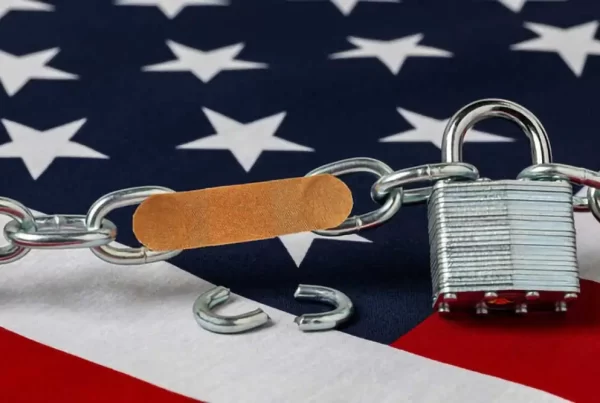Every six months the executive branch is required to publish a list of regulations the various Departments are considering issuing in the next few years. The Department of Homeland Security and its specific agencies, USCIS, ICE, and CBP notified us that they are planning on issuing more than 20 substantive regulatory changes. A number of those are extraordinarily substantive, and five, in particular, reflect the current administration’s policy to restrict legal immigration. Let’s take a look at those and their impact on the US economy and immigrants.
- Elimination of Concurrent filing of Adjustment of Status Cases for any current immigrant visa. Now, this may seem hyper-technical, but in reality, it upends decades of established law. it extends processing times for permanent residence FROM months TO years. It is designed for nothing more than to make actually obtaining the “green card” or permanent residence harder, longer, and more difficult. It makes people, including spouse and minor children of US citizens, have to maintain their underlying status, employees to keep the visas current, and eliminates a large group of people from having work authorization. It serves no purpose other than to make legal immigrants’ lives more difficult. They want to issue this proposed regulation the Fall of 2019.
- Elimination of the Immigrant Entrepreneur Program. This program, created under the Obama Administration following the Administrative Procedures Act (“APA”) allows individuals who meet the criteria of an “entrepreneur” under the rule (certain investors and job creators), to be given a “parole” into the United States until a visa became available to them. The idea was to make sure that America’s doors were open to innovators, investors, and entrepreneurs. That door is scheduled to slam shut in the Fall of 2019 when this program is discontinued. All of the necessary work has been done to make this happen. We are just waiting now for this further restriction of job-creating immigration by the Administration.
- Charging a Fee to Employers to Enter the H-1B Lottery in 2020. Yes, you read that right. Not only does USCIS charge an exorbitant fee to US Employers to apply for an H-1B for a prospective employee (more than $2,400), it now wants to charge for the right to apply for that actual application! Another burden on US employers that is unnecessary and solely designed to make legal immigration harder into the United States.
- Changing who is an Employer and what a Speciality Occupation is for H-1B visa purposes. Sometime this summer USCIS will propose to revise the definition of specialty occupation to “increase focus on obtaining the best and the brightest foreign nationals via the H-1B program” AND revise the definition of “employment and the employer-employee relationship.” USCIS alleges that this is to better protect U.S. workers and wages, but in reality limiting what an “employer” is by changing common law and statutory usage of that work, and making a “speciality occupation” something more than Congress intended (people whose positions require at least a specific type of education and four year university level degree) is poorly disguised xenophobia. The numbers of H-1B works allowed into the US is minuscule (85,000) compared to the number of people employed in the US (170 million). This is especially true in light of the fact that there are 1.5 million more jobs than there are people to fill them right now. This proposed change is, of course, in line with the Administration’s intent to limit legal immigration, but will, of course, be very damaging to our economy (but great for Canada’s).
- Creating a Barrier to Entry of Legal Immigrants by Finalizing Ultra Vires Public Benefit Rules. This particular rule has gone through the public comment period and received tens of thousands of negative comments. It is designed to make it more difficult for low-income people to bring their relatives to the United States, despite waiting patiently in line for years (and in many cases decades). There are massive amounts of empirical evidence what establishes that immigrants are, through their life, a net giver to our modern society and economy (more so than many native-born citizens). Yet, when it comes to bringing spouse, parents, and adult children to the United States, the USCIS (and the Department of State) have decided that, even when co-sponsors make more than the current regulatory required income (125% of poverty level income), that applicants can (and with this new rule, must) be denied their immigrant visas. We have already seen, at U.S. Consulates, many people denied visas because a consular official believes they are too infirm, too old, or that the sponsor’s $100,000 in yearly income is not enough to satisfy that official that the applicant will not become a public charge. The sad reality is that this type of regulation is simply another confirmation that this Administration does not believe that this is a Nation of Immigrants, but rather that we are “full,” and we must stop legal immigration altogether.
There are another dozen or so proposed regulations that will continue this restrictionist march. A march that will make the U.S. poorer economically and socially, and which will, in the end, bury Reagan’s City on a Hill.





